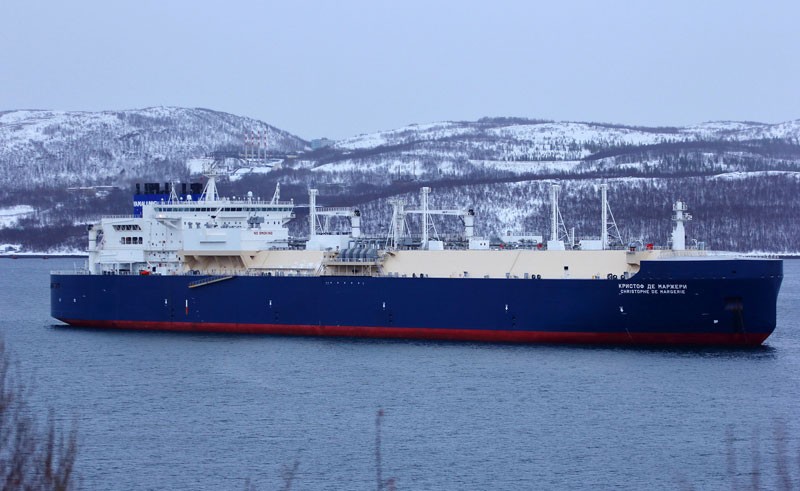First shipments of Yamal LNG set to head to market before October

Patrick Pouyanné, chairman and CEO of Total, one of the companies involved in Russia’s Yamal LNG project, confirmed in a recent presentation that the first shipment of from the new project is to be conducted “before October,” according to Neftegaz.
Originally, Leonid Mikhelson, head of Novatek, another company working on the project, wanted the historic shipment to take place in connection with his Aug. 11 birthday, Neftegaz writes.
That schedule, however, appears too tight.
In a meeting with President Vladimir Putin in November 2016, Mikhelson promised that the project will be online in fall 2017.
“I believe, in exactly in one year, we will invite you to attend the loading of the first LNG-carrier,” Mikhelson told the president. “The project is progressing excellently.”
The new icebreaking LNG tanker Christophe de Margerie will likely carry the load. The brand new 299-meter-long LNG carrier, built in Korea, in early February left Zeebrugge, Belgium, with a test load of LNG.
On Feb. 12 the ship entered the Kola Bay with course for Murmansk. Two days later, it continued its voyage eastwards for ice testing in the Gulf of Ob. The ship carries the name of the former Total leader who died in a Moscow plane crash in 2014.
The Christophe de Margerie will be able to handle shiploads up to 172,600 cubic tons of liquefied natural gas. It will have ice-protection level Arc7, and capacity to autonomously break through 2.1 meters of ice.
According to shipping company Sovcomflot, the LNG tanker will have engine power of 45 MW, which is “comparable with a nuclear powered icebreaker.”
A total of 15 carriers of the kind are to be built for the Yamal LNG project.
When in full swing, the Yamal LNG will produce an annual 16.5 million tons of liquefied gas. The LNG will be shipped to buyers both in Europe and Asia, parts of it eastwards along the Northern Sea Route.
The Yamal LNG project is operated by license holder Novatek (51 percent). Partners are French company Total (20 percent) and Chinese companies CNPC (20 percent) and Silk Road Fund (9.9 percent).